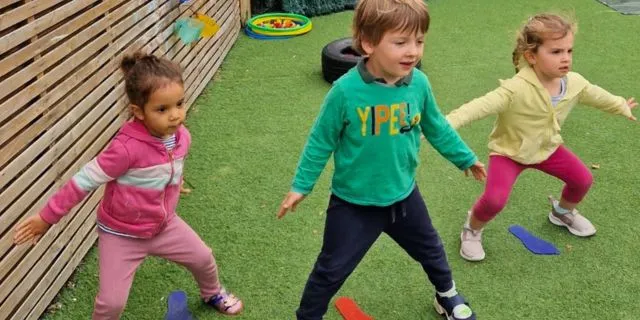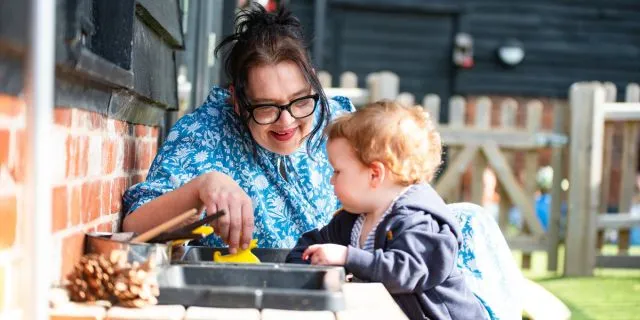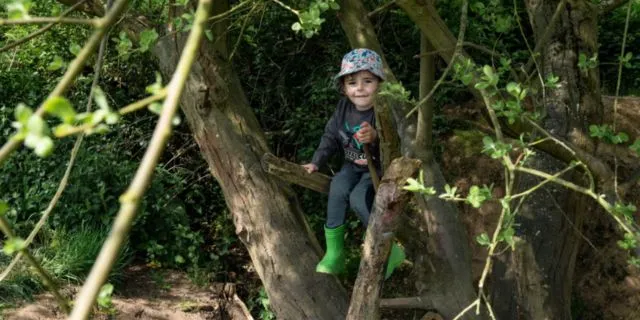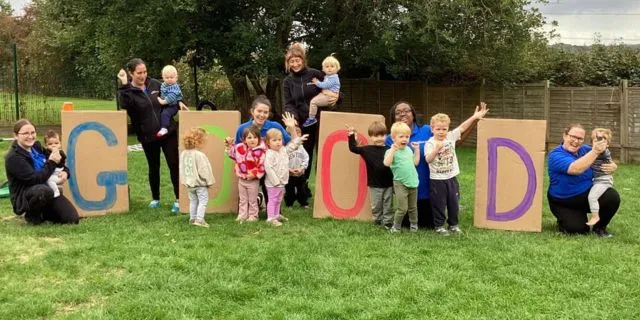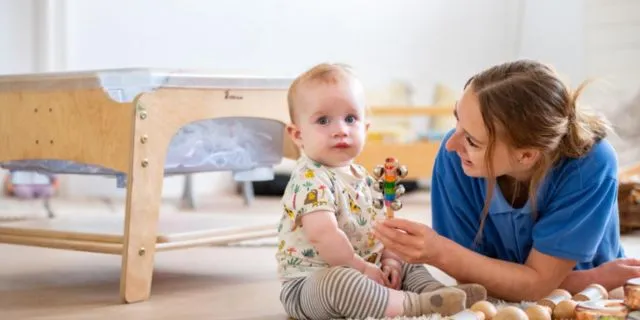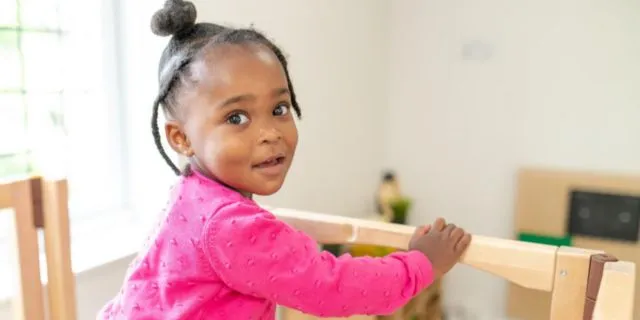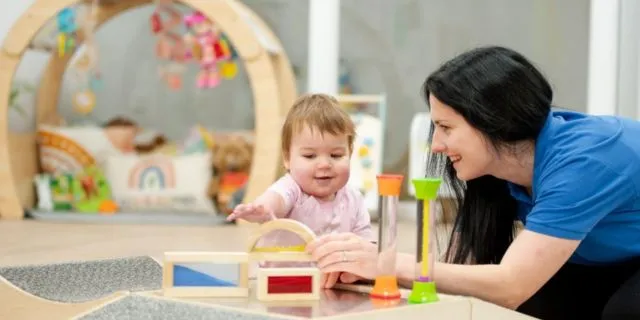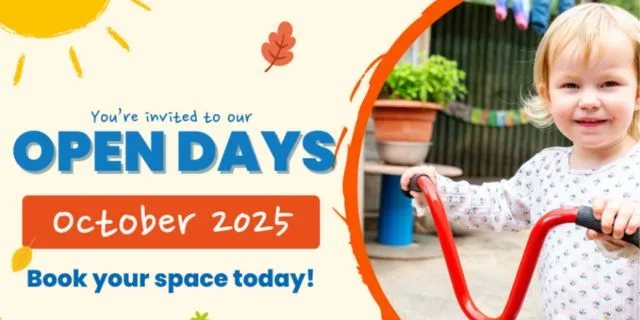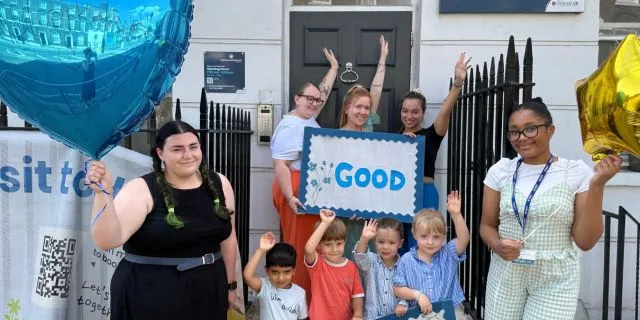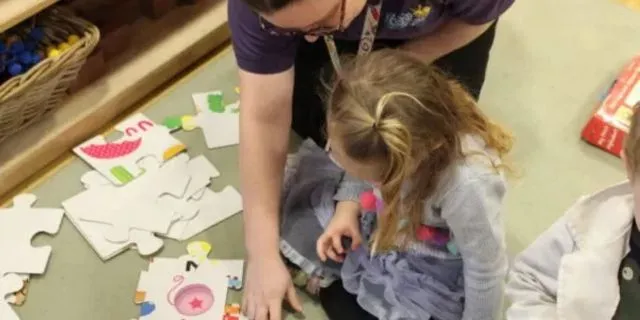
April marks the global event Autism Acceptance Month. The entire month is a fantastic opportunity for people to come together and raise greater awareness of autism and build a society where autistic people and their needs are understood, supported and empowered every day.
As leaders in the Early Years sector, it is our responsibility to ensure that autistic children have access to the best resources at nursery, as it is crucial for their well-being, happiness and development. The more inclusive and adaptable an educational setting is to those with additional learning needs, the more these individuals will thrive. This blog explores the structures, plans and resources nurseries can implement to best support autistic children and children with special educational needs during their Early Years development.
1. Structured and predictable routine
One of the most valuable things a nursery can do to support neurodivergent children is to implement and maintain a structured and predictable routine. A consistent daily schedule with clear transitions can help provide children with a sense of security to help reduce their anxiety. This can be further supported with visual resources like colourful timetables, timers, and cues, allowing children to understand and anticipate what comes next in their daily schedule. All Grandir UK nurseries implement daily schedules in picture format and create structure for our children to help every child feel safe, supported and confident in their environment, knowing what to expect and what is expected of them at each stage of the day.
We also recognise and respect that every child develops at their own pace. Rather than transitioning children based on their age, we consider individual readiness, ensuring each child only transitions into new environments when they are completely ready, feel comfortable and are fully prepared for the transition. This personalised approach helps create a smoother, less stressful transition, fostering greater confidence and a sense of security in every child
2. Dedicated SENCo or SEND trained staff

All mainstream schools and nursery schools must have at least one trained Special Educational Needs Co-ordinator (SENCo). These individuals are responsible for observing, assessing, planning and monitoring the progress of children with special educational needs and disabilities (SEND). Our SENCo’s support the team’s knowledge and understanding of how to support all children including those with Special Educational Needs.
3. Inclusive play opportunities

It’s important that when it comes to having fun and learning through play, no child is excluded, and all children experience group activities and benefit from peer group interactions. All activities, big or small, should have inclusivity at their core. Nurseries can support this by offering a mix of structured and free-play activities that actively engage all children, such as sensory play experiences. A great example of inclusive sensory play activities includes water play, playdough stations, mud kitchens and Loose Parts Play. Children who participate in these types of activities are also provided with a great opportunity to make friends as they navigate the activity together. We ensure that all of our staff, whether SENDCo trained or not, are aware of what is required to make all activities inclusive. Teams have the opportunity to attend training and knowledge-sharing sessions to ensure all are confident in working with a diversity of needs and interests. Our of teams have the skills and expertise to support all children including those who have specific requirements and needs.
Inclusive play opportunities are implemented across all Grandir UK nurseries. For example, the children at Kiddi Caru Day Nursery and Preschool in Redhill recently got involved in a foam play activity! This activity in particular supports children with sensory processing difficulties by providing a controlled, fun and tactile experience which they can engage with at their own pace. If a child is not keen on an activity, our nursery teams can always adapt it to individual needs.
4.Flexible communication methods

Every child is unique, and some may communicate in different ways to others. Nurseries can create an inclusive and supportive environment that celebrates these differences by being flexible in their communication methods. This might be through non-verbal communication methods such as sign language or by simply encouraging gesture-based communication, visual aids and assistive technology. Implementing this not only supports children within the autism community but also those who may have speech and language delays, hearing impairments, or other communication challenges.
At Grandir UK, we are strong advocates of the Sing and Sign programme as it is a great way to introduce different communication styles into a nursery. This is a singing programme developed by Speech and Language professionals that encourages children’s early communication skills through a series of hand gestures and music. These sessions are conducted in a variety of Grandir UK nurseries because we believe in promoting inclusive and supportive learning environments. By incorporating music and sign language, we help children develop confidence in their communication skills, enhance their language development, and build stronger connections with their peers and nursery staff.
5. Open communication with families
Parents know their child better than anyone else does. Maintaining an open line of communication between nursery teams and families is crucial for understanding the needs of every child (especially those with autism). Grandir UK’s nursery teams, begin communicating with families from registration, before the child starts at the setting to understand each child’s unique preferences, routines and developmental needs. This partnership allows us to provide the right support, whether through tailored learning approaches, sensory-friendly environments, or additional resources for children with SEND. By working closely with families, we ensure that every child feels safe, valued, and empowered to thrive in our nurseries.
6. Social and emotional support
Another great way nurseries can help support autistic children is through social and emotional support. Nursery teams can do this by encouraging peer interactions, teaching emotional regulation techniques and celebrating diversity – all of which foster inclusion, communication, and social development, making the nursery a more comfortable setting for all children.
At Grandir UK, we believe that social and emotional support should be an integral part of daily nursery life. A great example of this is a recent activity at Dicky Birds Nursery and Preschool, Pepys Road in Raynes Park, where children participated in The Colour Monster self-regulation activity. Through this activity, they identified different emotions and openly shared how they were feeling with the group. Initiatives like these help children develop emotional awareness, communication skills, and a sense of belonging, creating a more inclusive and supportive environment for all children and those with SEND.
Finding a nursery that’s right for your child
Every child deserves to feel included, supported, and nurtured. Nurseries play a crucial role in fostering a healthy, safe environment for all children. If you’re looking for a nursery that recognises the importance of inclusivity, flexibility, and tailored support, Grandir UK is committed to creating an environment where every child can thrive.
By implementing structured routines, inclusive play, flexible communication methods, and emotional support, we ensure that all children, including those with autism and SEND, feel safe, valued, and empowered. Find your nearest Grandir UK family nursery here.
Join us and get involved this Autism Acceptance Month by taking part in local events, spreading awareness and championing inclusivity. Together, we can build a world where autistic people are understood, supported, and celebrated every day.
Share this article
Related blog/news
Swipe to see our latest articles.

